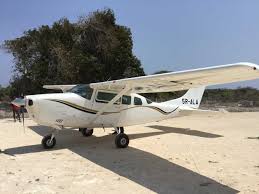Exploring Madagascar: A Treasure Trove of Biodiversity

Introduction
Madagascar, the fourth-largest island in the world, is renowned for its extraordinary biodiversity. Home to thousands of unique species, such as lemurs, baobab trees, and diverse marine life, it stands as a crucial focal point for conservation efforts globally. The island’s unique flora and fauna, along with its cultural richness, make Madagascar an essential subject for environmental research and tourism development.
Biodiversity Hotspot
Over 90% of the wildlife found in Madagascar is endemic, meaning these species are not found anywhere else on Earth. Recent studies have highlighted the discovery of new species in Madagascar each year, such as the recently identified ‘Lemur of the New Dawn’ in 2023. This ongoing discovery underscores the importance of protecting Madagascar’s habitats that are crucial for the survival of these unique species.
Conservation Efforts
Despite its ecological significance, Madagascar faces immense environmental challenges, including deforestation, climate change, and habitat destruction. The Madagascar government, alongside various NGOs, has initiated numerous conservation projects aimed at protecting endangered species and their ecosystems. For instance, the ‘Biodiversity Conservation Project’ launched in early 2023 aims to restore the forest cover in critical areas, with focus on community involvement, sustainable tourism, and environmental education.
The Cultural Landscape
In addition to its natural wonders, Madagascar is rich in culture. The Malagasy people, known for their diverse ethnic groups, hold a deep connection to their land and traditions. Celebrations like the ‘Famadihana’ or turning of the bones ceremony highlight the unique customs that preserve their heritage. This cultural richness adds another layer of importance to the conservation of Madagascar, as protecting its environment also means preserving the lives and heritage of its people.
Conclusion
Madagascar’s allure is not only in its breathtaking landscapes and unique wildlife but also in the urgent need for conservation. As discussions around climate change and biodiversity become increasingly prominent, Madagascar serves as a vital case study. The continued protection of its ecosystems and cultural heritage is not only significant for the island itself, but for global biodiversity efforts as well. With ongoing conservation work and increased awareness, the hope is that Madagascar will remain a thriving sanctuary for future generations.









